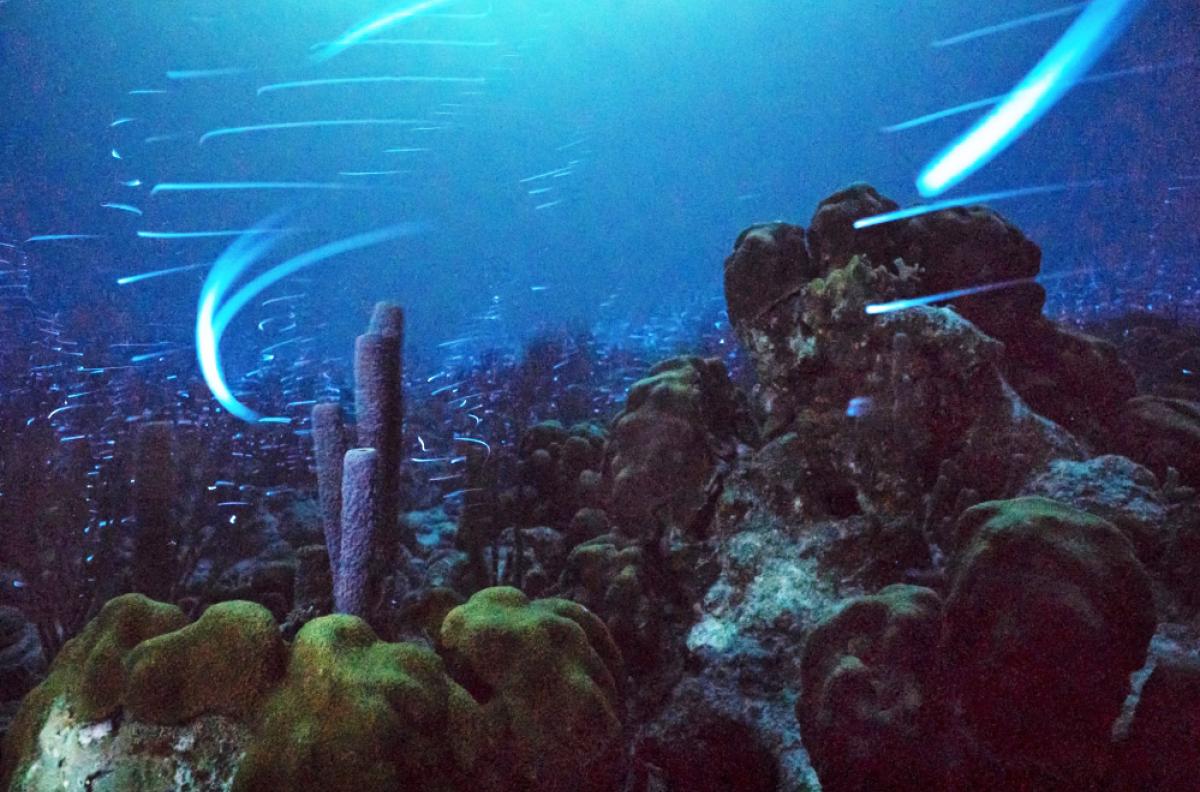
Male ostracods perform their mating display off the coast of Bonaire, in the Caribbean Netherlands. Each blurred streak in this time-lapse image appears as a delicate, ephemeral dot creating a string of twinkling lights. Photo Credit: © Kyle McBurnie
UC Santa Barbara doctoral student Emily Lau earned her a $20,000 Scholar Award from the P.E.O. Sisterhood for her research on bioluminescence. The award recognizes women doctoral students for their academic achievements and potential for positive impact on society.
Lau and her co-advisor, Professor Todd Oakley, recently discovered that bioluminescence evolved independently at least 94 times across the tree of life. This makes it an excellent trait for investigating longstanding questions in evolution.
Lau focuses on ostracods (also known as sea-fireflies) and midshipman fishes. To produce bioluminescence, midshipman must eat luminous ostracods to obtain a molecule essential for light production, she explained. She and her other co-advisor, Assistant Professor Arnab Mukherjee, are currently studying the proteins used to produce and regulate bioluminescence in ostracods.
The team is developing a biosensor to detect a process called sulfation, in which an enzyme adds a sulfate to another molecule. Sulfation is critical for important biological processes like detoxification and regulating hormones and neurotransmitters, Lau explained. Irregularities are linked to cancers, neurodegenerative diseases and skeletal disorders, so the pathway is a promising target for drug development. The group’s biosensor would be a major step forward, since there currently isn’t any way to assay sulfation in live cells.
Lau also is a recipient of the National Science Foundation’s Graduate Research Fellowship and research grants from the Society for the Study of Evolution, the Society of Systematic Biologists, and the Lerner-Gray Grants Program.
The P.E.O. Sisterhood — founded January 21, 1869, at Iowa Wesleyan College — is a philanthropic educational organization (P.E.O.) dedicated to supporting higher education for women. The Scholar Awards were established in 1991 to provide substantial merit-based awards for women in the United States and Canada who are pursuing a doctoral-level degree at an accredited college or university.